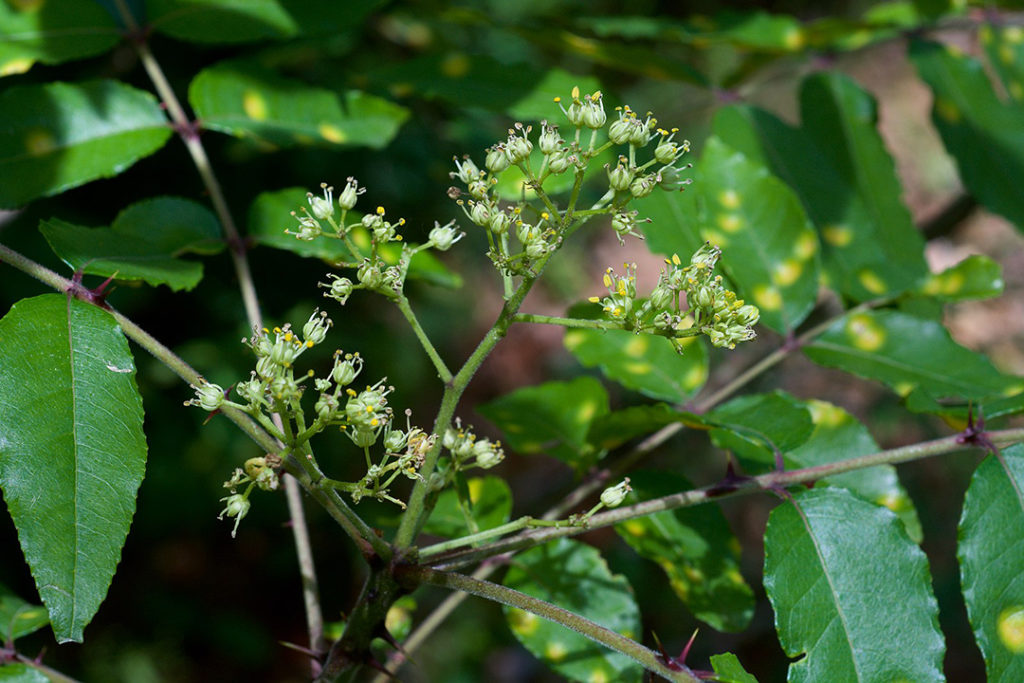
French Guiana
Prickly Ash “Angelica”
Zanthoxylum clava-herculis, Zanthoxylum rhoifolium

General Description / Cultural Significance
Angelica, Zanthoxylum Clava-Herculis, also known as prickly ash, is a small spiny tree from the rue family with a pungent aromatic bark. It produces fruits that are reddish-brown when ripe and fragrant flowers. The twigs have a strong lemon-like smell. The equatorial climate of French Guiana aids the growth of dense forests and trees like this, which cover 94% of the total surface area.
Prickly ash has historically been used in traditional medicine to treat all kinds of medical ailments, and still is today. The bark and berry from the tree can be used in various ways to ease menstrual cramps, blood circulation problems, and joint pain—commonly a remedy for arthritis and rheumatism. Chewing the leathery leaves of prickly ash is known to leave a tingling or numbing sensation in the mouth, and for this reason, it can ease toothaches. This is a result of an alkamide, a natural compound it contains. Its other properties include that it is antifungal, antinausea, a digestive aid, and a tonic. Prickly ash is also a rubefacient, meaning that when its volatile oils are used on the skin, it causes redness and increased blood flow.
Climate Change/Conservation Status
French Guiana is experiencing several severe effects from climate change. The rise in sea level is forcing their mangrove forests to migrate inland along their coastal strip, and the El Niño effect is predicted to lead to longer droughts and more violent rain. The Amazonian forest is predicted to move toward a more Savannah-like state, which would mean a severe loss of biodiversity that could be even greater due to forest fires. The aforementioned results could be highly impactful on the prickly ash. Unfortunately, in 2020, the French government also pushed for Guiana to build soy bio-fuel plants, which would require Amazon rainforest clearing and would be hugely detrimental to the environment. Guiana is a country that has faced social turmoil in the past years in response to inadequate infrastructure, and perpetual reliance on the French state.
Nevertheless, prickly ash is currently considered a plant of least concern by the IUCN.
Alternate Names
Angelica tree
Hercules’ club
Pepperwood
Southern prickly ash
Tingle tongue
Toothache tree

